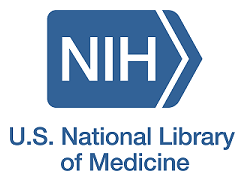

To Your Health: NLM update Transcript
High costs of health care: 02/27/2017

Greetings from the National Library of Medicine and MedlinePlus.gov
Regards to all our listeners!
I'm Rob Logan, Ph.D., senior staff, U.S. National Library of Medicine (NLM).
Here is what's new this week in To Your Health - a consumer health oriented podcast from NLM - that helps you use MedlinePlus to follow up on weekly topics.
U.S. national spending on health care increased between 1996-2013, now exceeds $3 trillion a year, and is skewed towards seniors, women, and persons with chronic conditions, finds an insightful research article and an accompanying editorial recently published in the Journal of the American Medical Association.
Specifically, the comprehensive study finds seniors consume significantly more health care resources than other adults or younger people. The findings suggest health care expenses increase progressively as persons age. The highest per person spending category is women aged 85 or older, which is estimated to be about $30,000 a year.
In contrast, the study finds estimated annual health care spending for women ages 70-74 is $16,000. Estimated, annual health care spending is $8,500 for women ages 60-64 and is about $2,000 annually for girls ages 1-4.
The study finds about 22 percent of health care spending for adults after age 65 occurs in care within nursing facilities.
The findings suggest 10 of the 14 most costly illnesses are chronic conditions, such as diabetes, as well as chronic cardiovascular diseases, chronic respiratory diseases, as well as cancer, and cirrhosis. In an editorial that accompanies the study, the author writes these findings reemphasize (and we quote): '... the need for a health care system focused not on acute problems, but rather on the management of chronic, lifelong conditions' (end of quote).
The study additionally suggests spending on behavioral health issues, such as depression, mental health, and substance abuse, are higher than previously estimated, yet provide a foundation to reduce future health care costs.
As the editorial's author writes (and we quote): 'The data... indicate that the United States needs to make addressing behavioral health problems and systematically increasing accessibility to relevant therapeutic interventions greater priorities. Not only are such efforts important for patients, but they are also likely to reduce care costs' (end of quote).
Among other findings, the study suggests the costs to treat physical pain, especially in the lower back, are increasing more than almost all other areas of health care.
The study's findings are based on the National Health Expenditure Accounts data set that was supplemented by other data by the study's 26 authors.
The editorial's author concludes the study (and we quote): '.... followed the health care money, and the trail has led to important findings that could ultimately compel the United States to change how it spends its trillions of dollars in health care. At the very least, the data suggest that the United States needs to pay more attention to and provide higher quality care for behavioral health and management of physical pain (such as low back, hip, and knee pain)' (end of quote).
Meanwhile, the National Center for Health Statistics provides ongoing information about overall health and access to care within the 'statistics and research' section of MedlinePlus.gov's health insurance health topic page.
The Henry J. Kaiser Foundation provides information about uninsured Americans also within the 'statistics and research' section of MedlinePlus.gov's health insurance health topic page.
MedlinePlus.gov's health insurance health topic page additionally provides links to the latest pertinent journal research articles, which are available in the 'journal articles' section. Links to relevant clinical trials that may be occurring in your area are available within the 'clinical trials' section. You can sign up to receive updates about health insurance as they become available on MedlinePlus.gov.
We should note that other health insurance issues, such as the status of the Affordable Care Act, currently dominate deliberations among the new U.S. Congress.
To find MedlinePlus.gov's health insurance health topic page, please type 'health insurance' in the search box on MedlinePlus.gov's home page, then, click on 'health insurance (National Library of Medicine).' MedlinePlus.gov also has health topic pages devoted to: managed care; Medicaid; and Medicare.
Before I go, this reminder... MedlinePlus.gov is authoritative. It's free. We do not accept advertising .... and it is written to help you.
To find MedlinePlus.gov, just type 'MedlinePlus.gov' in any web browser, such as Firefox, Safari, Chrome, or Explorer, on any platform.
We encourage you to use MedlinePlus and please recommend it to your friends. MedlinePlus is available in English and Spanish. Some medical information is available in 48 other languages.
A written transcript of recent podcasts is available by typing 'To your health' in the search box on MedlinePlus.gov's home page.
The National Library of Medicine is one of 27 institutes and centers within the National Institutes of Health. The National Institutes of Health is part of the U.S. Department of Health and Human Services.
A disclaimer — the information presented in this program should not replace the medical advice of your physician. You should not use this information to diagnose or treat any disease without first consulting with your physician or other health care provider.
It was nice to be with you! Please join us here next week and here's to your health!


































No hay comentarios:
Publicar un comentario